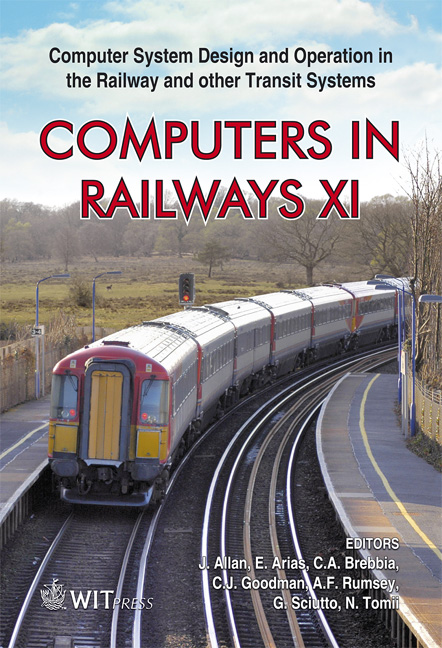Evaluation Of Energy Saving Strategies In Heavily Used Rail Networks By Implementing An Integrated Real-time Rescheduling System
Price
Free (open access)
Transaction
Volume
103
Pages
10
Page Range
349 - 358
Published
2008
Size
982 kb
Paper DOI
10.2495/CR080351
Copyright
WIT Press
Author(s)
M. Luethi
Abstract
The Swiss Federal Railways in cooperation with the Swiss Federal Institute of Technology ETH has developed an integrated real-time rescheduling system to simultaneously improve rail network capacity and punctuality. The approach combines real-time rescheduling (performed after a delay or incident) with very precise train operation facilitated by providing dynamic schedule information to train drivers. This information enables train drivers to change their driving behaviour and adjust their speed based on the new schedule. This can significantly reduce the number of unnecessary decelerations or stops due to conflicts. Consequently, traffic flow is improved. In addition, also energy consumption is reduced because unintended re-accelerations are minimised. This paper describes results of an analysis performed to calculate the energy savings possible using the integrated real-time rescheduling system. Keywords: rail traffic management; train dispatching; energy optimisation strategies. 1 Introduction Railway operators have significantly increased passenger and freight service in the last several years. Consequently, railway infrastructure is being used more intensively and the system is becoming less stable. Under these conditions a small initial disturbance can propagate causing substantial knock-on delays throughout the entire network. In order to reduce the impact of these delays, train dispatchers must react quickly and make decisions based on current conditions. Given the complexity of this task, research on real-time rescheduling systems for rail networks has become an important research topic. Good overviews of the
Keywords
rail traffic management; train dispatching; energy optimisation strategies.





